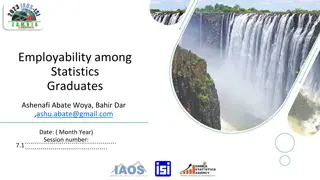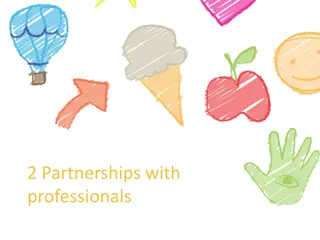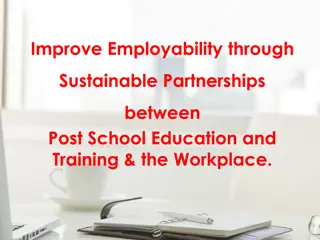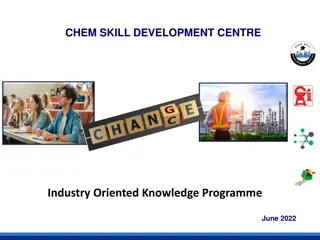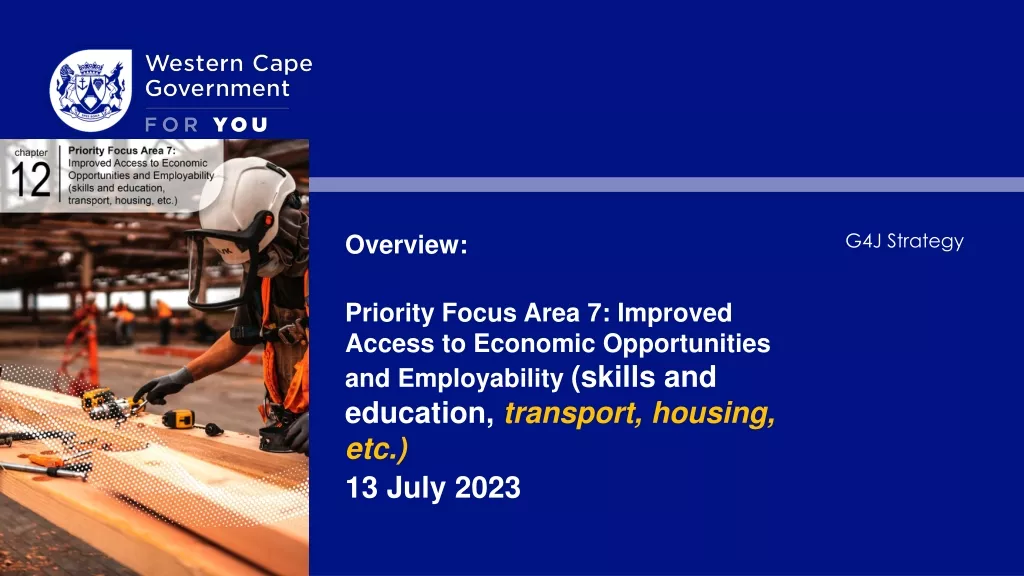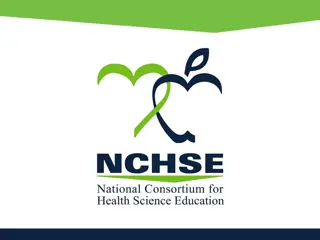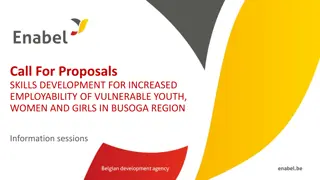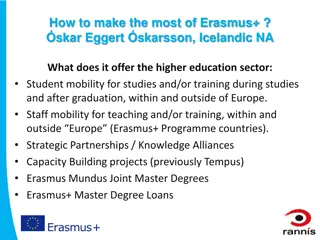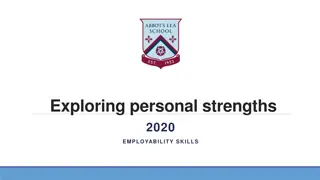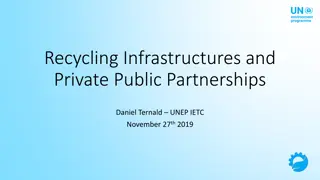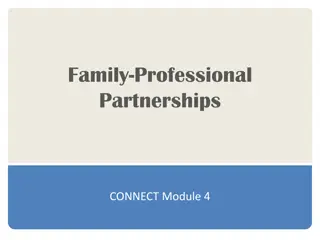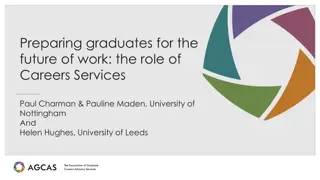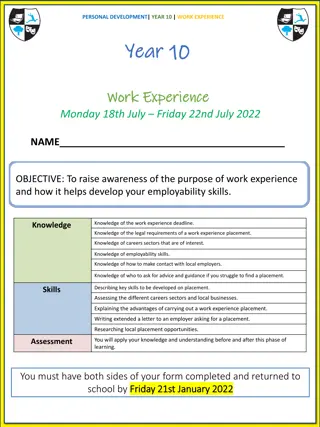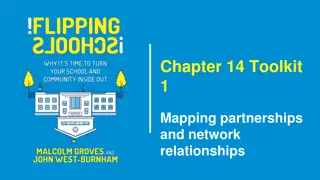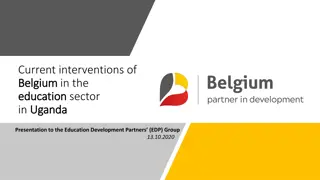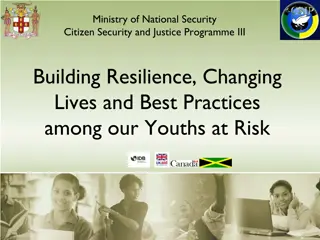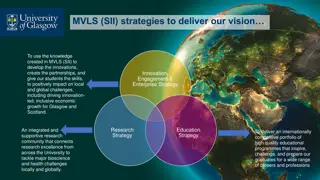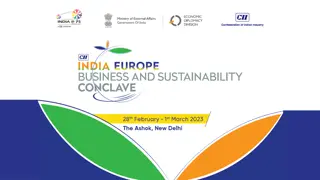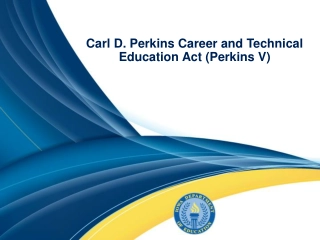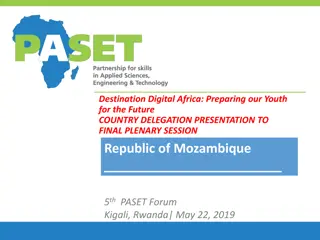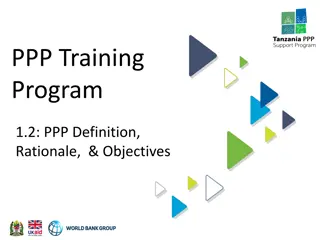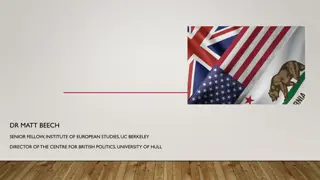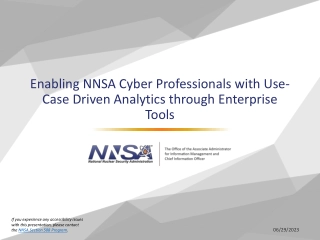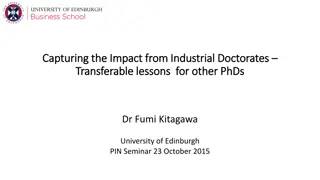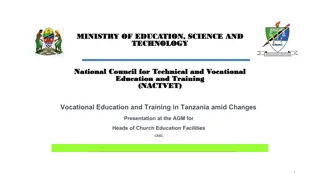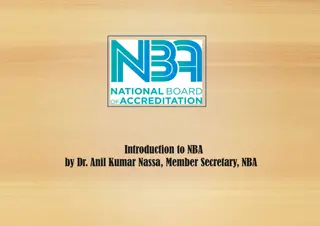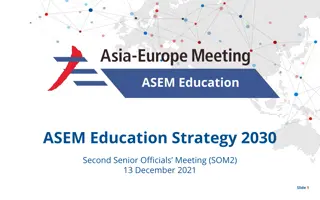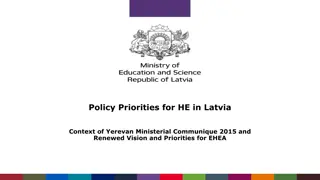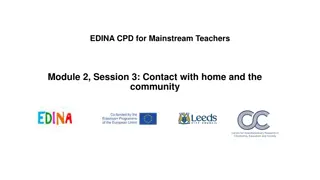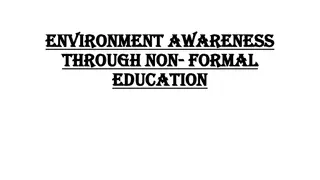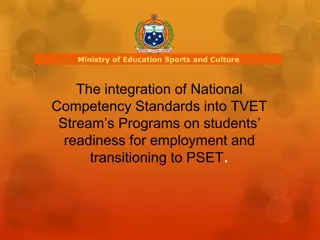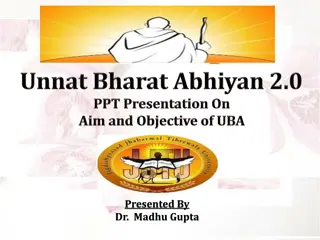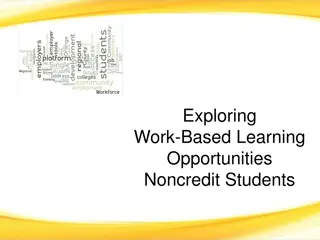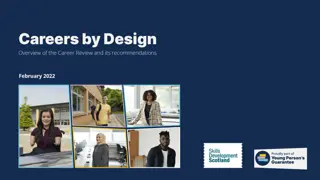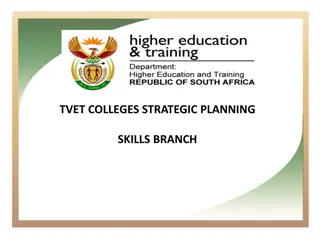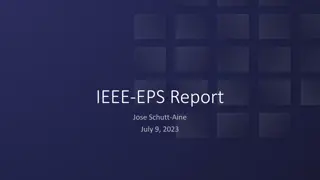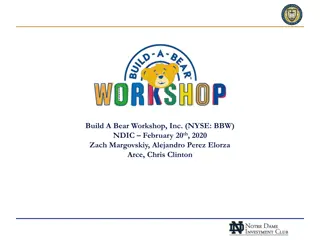Enhancing Employability Through Industry-Education Partnerships
Focused on bridging the gap between employers and service providers, this article delves into the role of industry advisory panels in updating academic curriculums to align with industry needs. It also highlights challenges faced in the automotive field, such as outdated curriculum and lack of awareness among students and parents. Recommendations for improvement include enhancing engineering training, fostering effective partnerships, and improving funding and support for students and educators.
- Employability
- Industry-Education Partnerships
- Automotive Industry
- Curriculum Alignment
- Capacity Building
Download Presentation

Please find below an Image/Link to download the presentation.
The content on the website is provided AS IS for your information and personal use only. It may not be sold, licensed, or shared on other websites without obtaining consent from the author. Download presentation by click this link. If you encounter any issues during the download, it is possible that the publisher has removed the file from their server.
E N D
Presentation Transcript
Establishing & Sustaining Partnership between Employers & Service Providers to improve on employability! Tuiaopo Faamausili Andrew Ah Liki Chairman Automotive Industry Advisory Panel Managing Director Bluebird Lumber & Hardware
Service Provider vs Employer EMPLOYER SERVICE PROVIDER
Role of Industry Advisory Panel Discuss & Update SQA & NUS on the changes in the Industry as a whole Making sure that NUS curriculum remains relevant to the needs of the Industry. They supports NUS by carrying out meetings to discuss what is required under the NUS Strategic Plan & Corporate Plan Advise NUS and SQA on latest trends, global and domestic challenges and the impact of automotive on Jobs & the economy Liase with NUS on what support do they need in order to work together to generate increase opportunities, products and services to enable NUS to better serve the needs of Industry Interests. Advising on implementation of international standards in order to best serve the Industry and the Country
NUS Automotive Graduates Current Situation No or limited Awareness for both parents and students. Improvement More and more Awareness in order for increase knowledge of parents & students Review curriculum and making sure that NUS curriculum remains relevant to the needs of the Industry. Curriculum is out of date and needs a review Quality of Graduates is not up to the IPES Standards New Technologies is the way forward. Eg Technological advances makes cars safer, user friendly etc We should seek ways to improve the quality of the course. NUS still using old analog automotive systems and tools. Most features of the modern automotive industry are almost unrecognisable from the original products and is much safer Automotive course should link with Electronic course at NUS. Industry should be more effective when it comes to reporting changes and challenges to NUS Most automotive machines and tools are upgraded and old ones no longer exists meaning no more spare parts available. NUS should be more proactive in reviewing the courses based on the needs of the Industry. NUS, SQA and Industry relationship in terms of working together is not as effective as it should be.
Improvement on Engineering Trainings Capacity Building Partnerships Government and Private Sector Partnership on these should be more effective Funding There is more funding available, problem is students don t know where they get it from. More and more Awareness in order to increase knowledge of parents & students Employers should do more by providing tools for hands on work experience for the graduates Current NUS & IPES Scholarship scheme is good but it s not properly monitored and lack reporting by NUS NUS should have programmes for More Capacity Building of the Lecturers and Trainers in order to inform them of more advance automotive challenges in the Industry globally NUS should establish good partnership with IPES not just take in IPES sponsorship for students scholarship then not reporting on the progress of students Gratuates as student should be getting more funding by government to fund school fees like how government sponsoring FOE students problem is not enough push by NUS. NUS should establish programmes such as industrial secondment everyweek to encourage more hands on participation of students before they graduate NUS and Employers should work together as partners to create opportunities for further studies and for job opportunities for graduates. NUS should work with PSC and overseas missions and other institution to seek scholarship opportunities for graduates to seek for further studies via sponsorship available NUS should have a system that encourage students to take up online courses that are freely available for them online to boost their knowledge and understanding. NUS, SQA and Industry relationship in terms of working together is not as effective as it should be. NUS should work with PSC to create opportunities for graduates to do secondment to overseas countries funded by our partners AUSAID, NZAID etc
Employability of TVET Gratuates Contributions NUS and Industry to create job opportunities for TVET Graduates through partnership. Benefits TVET Graduates will develop practical and other skills for different providers and more jobs will be offered. More exposure of graduates by engaging in Engineering Projects to familiarise themselves in the nature of Industry and also to upgrade their qualifications. Higher Quality of qualifications and jobs will be recognised meaning higher earnings and will improve people s lives. Improvement of Quality of Graduates is something that NUS and IPES should work together to achieve by improving learning tools, learning materials, reviewing programmes and resources and having student second/attached more often to the industry. The better the qualities of the graduates the better chances of employments locally and overseas. These graduates will then play a important role in implementing and promoting sustainable development because providers and employers will create a workforce who will be in the forefront in dealing directly with sustainable issues. NUS and SQA should play a more active roles on monitoring the course, making funds available for the course and building capacity of lecturers and trainers at NUS There will be an increase and improvement to social issues such as rural and urban employment and more opportunities created for up and coming students. NUS to establish continue on courses for graduates to the other level or partner up with Universities outside of Samoa to give allowances for those from Samoa to attend.
Challenges & Way Forward TVET has gained momentum globally and locally however in this case, it needs improvement from both NUS and the Industry, an urgent improvement NUS must be able to anticipate and response to challenges posted before by offering improved relevant programmes, suitable and up to date curriculum, new ways of teaching and delivering the course including utilising e-learning tools. The NUS curriculum should be reviewed to include new technological changes, and consideration for not only to local and national market but also regional and international. We should be creating more awareness, be the agents for sustainable developments, creating workforce that support technology and help mitigate climate change and develop and implement monitoring tools to assess the sustainable practises. Achieving all these sustainable developments requires collective efforts and strong commitments from all of us here today.



